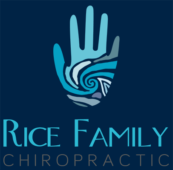Holistic approaches to allergies

Holistic approaches to allergies
Itchy nose, irritated eyelids, stuffed up sinuses—if you suffer from allergies, you probably know these symptoms all too well. It’s like having a nasty cold for days, weeks, or even months on end, with no respite.
While many health practitioners will take the allopathic approach to seasonal allergies, there are also a number of natural ways to help reduce and relieve symptoms that don’t involve over the counter or prescription drugs. Many are just as effective and have no side effects.
Seasonal allergies occur when the body overreacts to an environmental cue such as pollen, dust, dander, mold, or smoke. When the exposure occurs in susceptible people, the body’s immune system releases an inflammatory chemical (histamine) that causes blood vessels to become engorged and results in redness, swelling and itchiness, in addition to constricted airways.
For some people this is primarily a seasonal problem—our 12 year old daughter’s eyes and nose go south every May. Many others can suffer from allergic reactions to grasses and other plants, or pet dander and smoke all year long.
So, what to do? How to treat allergies naturally.
If your first line of defense against allergies is a trip to the doctor, you’ll likely leave with a pharmaceutical way to treat the symptoms. Many doctors will prescribe over the counter meds such as Benadryl or other drugs containing pharmaceuticals such as diphenhydramine, brompheniramine or loratadine. While these do treat the symptoms of allergies and colds, they do nothing for the underlying causes. Additionally, most have potential side effects such as anxiety, drowsiness, dizziness, constipation and upset stomach, to name a few.
For those who favour a holistic approach to health, another way to minimize the effects of allergies is to minimize your exposure to the sources of the triggers. Try to mitigate the body’s response by reducing the triggers:
- Avoid carpet, heavy drapes and upholstered furniture that may be a haven for dust and dust mites.
- Use furniture made of leather, wood, plastic or vinyl that can be wiped clean regularly
- Use rugs that can easily be washed
- Avoid thick blankets made of wool and down quilts
- Mop floors at least once a day
- Vacuum regularly (daily) with a high efficiency air filter (HEPA) style filter that catches dust mites
- Use an air filter with a high efficiency air filter built in (HEPA)
- Wash sheets, pillows and blankets regularly, and throw dispose of old blankets and pillows that may have accumulated dust and mites.
Diet also plays a key role in our body’s response to external stimuli in at least two ways: First by preparing the body’s immune system to better fight (or prevent) the allergic response and second by helping to alleviate the symptoms of the response.
The following should be considered all the time, but particularly during allergy season:
- Eat whole, home prepared meals as often as possible to help build the body’s immune response;
- Avoid sugars, and particularly added sugars, which lead to inflammation in the body and can cause or worsen the effects of allergies;
- Avoid dairy products, which promote mucus production and exacerbate allergy symptoms.
At Rice Chiropractic we’re big proponents of a holistic approach to our family’s health. While you should always speak to a trusted healthcare professional if you have any doubts about your health, we encourage our patients to think of their health as a complex web of interacting parts: the mind, body, diet, stress levels—all these can affect our overall health. Stay fit, eat well and maintain a positive attitude—these tenets of health are powerful tools of wellness.
If you have any questions about this or any other aspects of your spinal health, please call us today to book an appointment and meet with Dr James and Dr Erin for your family’s wellbeing.
Rice Family Chiropractic
Wellness from our family to yours.
Dr. Erin and James Rice
#310-6525 204 Street
Langley, BC V2Y 3B3
604 539 0542


















